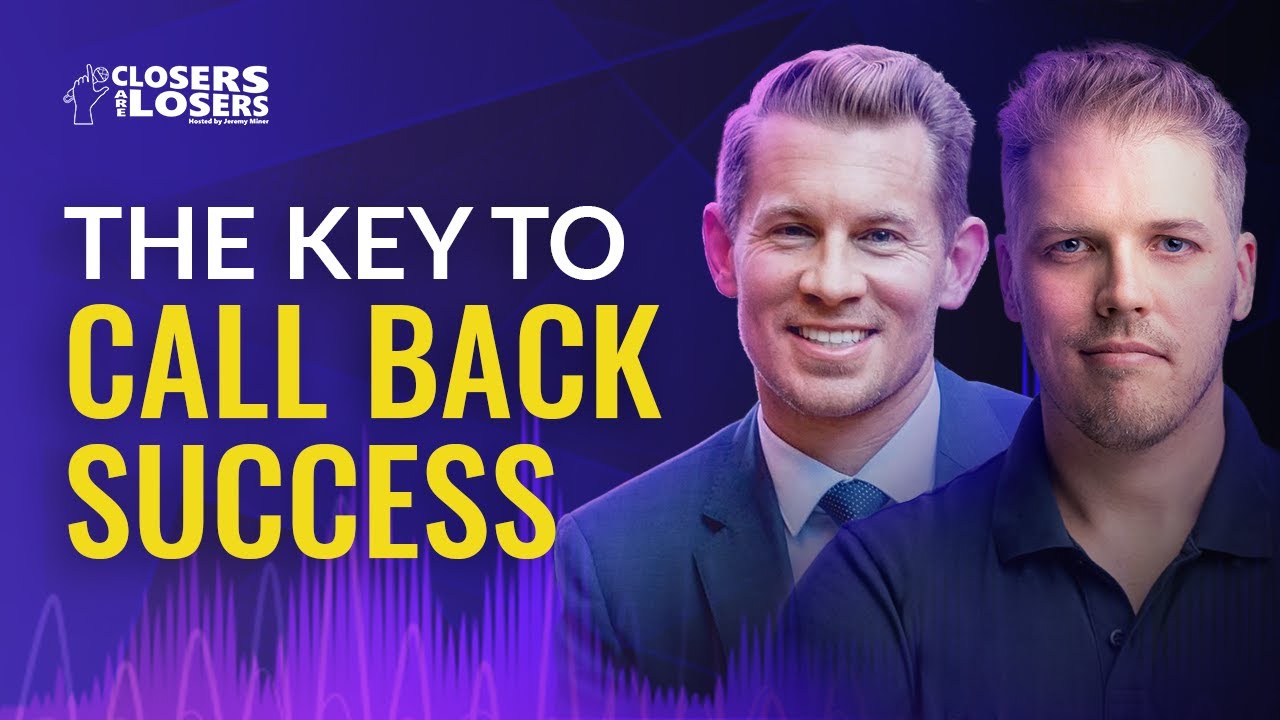Communication Cues That INSTANTLY Unlock Buyer Trust
Summary
TLDRThis video addresses three key reasons why prospects often remain surface level during sales conversations. First, sounding scripted or monotone makes the interaction feel unnatural and impersonal. Second, asking vague, generalized questions leads to equally vague responses, hindering deeper understanding. Third, asking questions too quickly gives prospects no time to think deeply, resulting in shallow answers. The video emphasizes the importance of mastering verbal cues, pacing, and emotional engagement to encourage meaningful conversations. By refining these techniques, sales professionals can better connect with prospects and uncover their true needs.
Takeaways
- 😀 Sounding scripted or monotone in your delivery can make the conversation feel impersonal and force your prospects to give surface-level responses.
- 😀 Verbal cues like 'ah', 'oh', or 'really' can help bridge from one question to the next and make the conversation feel more natural and engaging.
- 😀 Asking vague or generalized questions, like 'What are your goals?' or 'What challenges are you facing?' will lead to vague responses, hindering your ability to uncover the prospect's true needs.
- 😀 Specific, targeted questions will guide the conversation and help you uncover deeper insights into the prospect’s situation.
- 😀 Giving prospects time to think before answering is crucial. Rushed questioning leads to knee-jerk responses that lack depth.
- 😀 Mastering verbal pacing (spacing out your questions) is key to allowing your prospects to internalize and give thoughtful answers.
- 😀 Flexibility in your questioning is important. Adjust your questions based on what the prospect says to make the conversation feel more personalized.
- 😀 Your questioning style should be conversational, not interrogative. If your tone feels like an interrogation, prospects will resist and shut down.
- 😀 To move from surface-level answers to deeper responses, you need to emotionally engage your prospect and help them understand their own situation more clearly.
- 😀 Consistent practice is essential to mastering these skills. Just like athletes, you need to practice every day to become an expert at engaging your prospects.
Q & A
Why do prospects give vague and surface-level answers during sales conversations?
-Prospects often give surface-level answers because they feel the conversation is scripted or too rigid. When a salesperson's tone is monotone and they don’t use verbal cues to transition between questions, it can make the interaction feel more like an interrogation than a natural conversation.
What is a key reason why a sales conversation might sound scripted?
-A sales conversation sounds scripted when the salesperson's tone remains the same throughout the interaction, making it feel like a telemarketer's call. This lack of tonal variation and the use of rigid transitions between questions can cause prospects to disengage.
What are verbal cues, and why are they important in sales conversations?
-Verbal cues are small words or sounds, such as 'ah', 'really', or 'oh', that help bridge from one question to another. These cues make the conversation feel more fluid and natural, preventing the interaction from feeling scripted and encouraging more genuine responses.
How can mastering verbal cues improve the sales conversation?
-By mastering verbal cues, salespeople can make the conversation feel more conversational and less scripted. This helps build rapport and makes the prospect feel more comfortable, resulting in deeper, more insightful answers.
What effect do vague, surface-level questions have on the conversation?
-Vague, surface-level questions like 'What are your challenges?' or 'What are your goals?' lead to generalized, shallow responses. These questions fail to direct the conversation in a meaningful way and prevent the salesperson from understanding the prospect’s true needs and situation.
Why should salespeople avoid asking broad questions like 'What are your goals?'
-Broad questions allow the prospect's mind to wander and give answers that are too vague to be useful. Specific, focused questions are needed to guide the conversation in a direction that uncovers the deeper issues and needs of the prospect.
What is the role of pacing in a sales conversation?
-Pacing in a sales conversation refers to the speed at which questions are asked and the time given for the prospect to think before responding. Slowing down the pace allows the prospect to reflect on their answers, leading to more thoughtful, detailed responses.
How does asking questions too quickly impact the conversation?
-Asking questions too quickly prevents the prospect from having time to internalize and reflect on their responses. This results in knee-jerk, shallow answers that do not provide valuable insights into the prospect's needs or concerns.
What is the significance of mastering verbal pacing in sales?
-Mastering verbal pacing allows a salesperson to guide the conversation more effectively by giving the prospect time to think. This helps elicit deeper, more reflective answers, which are essential for understanding the prospect’s true situation and building rapport.
How can a salesperson move away from a scripted conversation towards a more natural one?
-To move away from a scripted conversation, a salesperson should incorporate verbal cues, slow down the pacing, and ask specific questions. This helps create a more engaging, fluid conversation that feels less like a script and more like a natural dialogue.
Outlines

このセクションは有料ユーザー限定です。 アクセスするには、アップグレードをお願いします。
今すぐアップグレードMindmap

このセクションは有料ユーザー限定です。 アクセスするには、アップグレードをお願いします。
今すぐアップグレードKeywords

このセクションは有料ユーザー限定です。 アクセスするには、アップグレードをお願いします。
今すぐアップグレードHighlights

このセクションは有料ユーザー限定です。 アクセスするには、アップグレードをお願いします。
今すぐアップグレードTranscripts

このセクションは有料ユーザー限定です。 アクセスするには、アップグレードをお願いします。
今すぐアップグレード関連動画をさらに表示

Communication Cues That INSTANTLY Unlock Buyer Trust

How to Ask BETTER Sales Questions

Sales Psychology: Unlocking the “Buy Switch” in Any Prospect

☎ The Art of Follow-Up: Get Them Calling Back | Sales Techniques

How To Close A Sale - 5 Reasons People Don't Buy

The 3 Core Differences Between Traditional Sales Techniques and NEPQ™
5.0 / 5 (0 votes)
